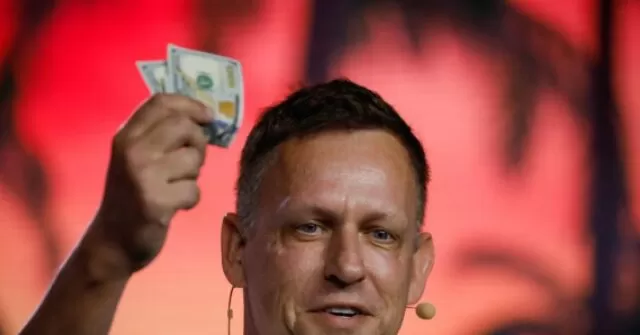Silicon Valley billionaire Peter Thiel, known for his investments in groundbreaking technology companies, is now turning his attention towards a different kind of innovation – drugs. Thiel has recently announced his investment in the upcoming “Olympics on Steroids”, a high-profile event focused on drug-enhanced athletic performance.
The event, which has been dubbed as the future of sports, aims to push the boundaries of human capabilities by allowing athletes to use performance-enhancing drugs. Thiel, a well-known advocate for radical ideas and unconventional thinking, believes that this event has the potential to revolutionize the sports industry.
According to Thiel, the current regulations and restrictions in sports are holding back true human potential. He argues that advancements in technology and medicine have made it possible for athletes to achieve feats that were previously thought impossible. By allowing the use of performance-enhancing drugs, Thiel believes that athletes will be able to push the limits and achieve even greater accomplishments.
This is not the first time Thiel has invested in a controversial project. In the past, he has supported startups in areas such as artificial intelligence, cryptocurrencies, and space exploration. Thiel has always been a firm believer that progress and innovation come from taking risks and challenging the status quo.
With his investment in the “Olympics on Steroids”, Thiel is once again making a bold move that has caught the attention of the tech and sports industries. The event, which is set to take place in the near future, has already sparked a lot of debate and controversy. But Thiel remains undeterred, stating that he is confident in the potential of this event to change the way we view sports and human capabilities.
One of the main criticisms of the event is the safety concerns surrounding the use of performance-enhancing drugs. However, Thiel assures that all necessary precautions will be taken to ensure the safety of the athletes. The event will be closely monitored by medical professionals and strict guidelines will be in place to prevent any potential harm to the participants.
Another concern expressed by critics is the impact this event may have on traditional sports. However, Thiel argues that the “Olympics on Steroids” will not replace traditional sports, but rather provide an alternative for those athletes who want to explore the full potential of their capabilities.
Furthermore, Thiel sees this as an opportunity to address the issue of doping in sports. Currently, many athletes are using performance-enhancing drugs illegally, putting their health at risk and tarnishing the integrity of sports. By legalizing the use of these drugs in a controlled and regulated environment, Thiel believes that this will eliminate the use of banned substances and create a level playing field for all athletes.
Thiel’s interest in this project also stems from his belief in the potential of drugs to improve human performance in other areas of life. He envisions a future where drugs could be used to enhance cognitive abilities, helping individuals achieve greater success in areas such as academia and business.
Despite the controversy surrounding this event, Thiel remains optimistic about its potential and is putting his money where his mouth is. With his investment, he hopes to not only revolutionize the sports industry but also challenge our societal views on what is considered acceptable and possible.
In conclusion, Peter Thiel’s investment in the “Olympics on Steroids” may be seen as a bold and unconventional move, but it is a reflection of his determination to push the boundaries and drive innovation. With this event, Thiel is once again proving that he is not afraid to take risks and invest in ideas that have the potential to change the world. Only time will tell if the “Olympics on Steroids” will be a success, but one thing is for sure – Thiel’s bold investment has already sparked a new conversation and brought the topic of performance-enhancing drugs to the forefront of our minds.

